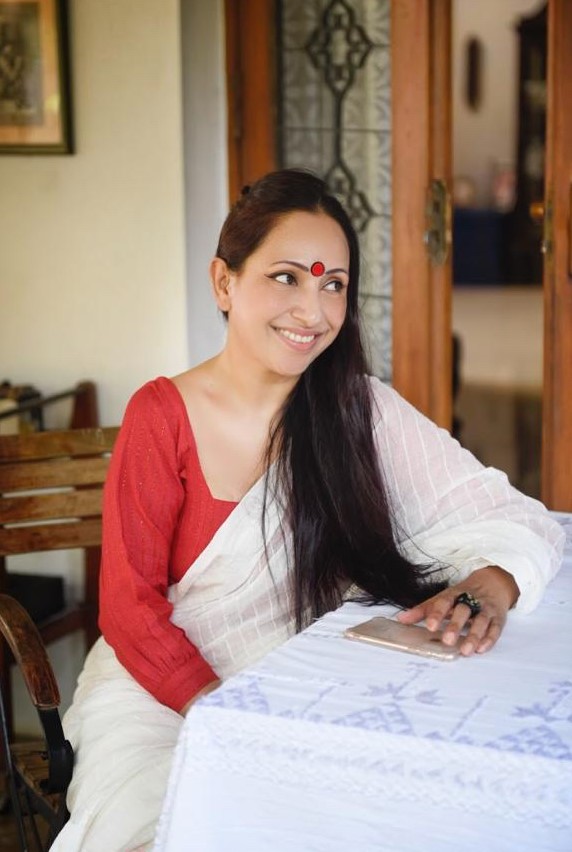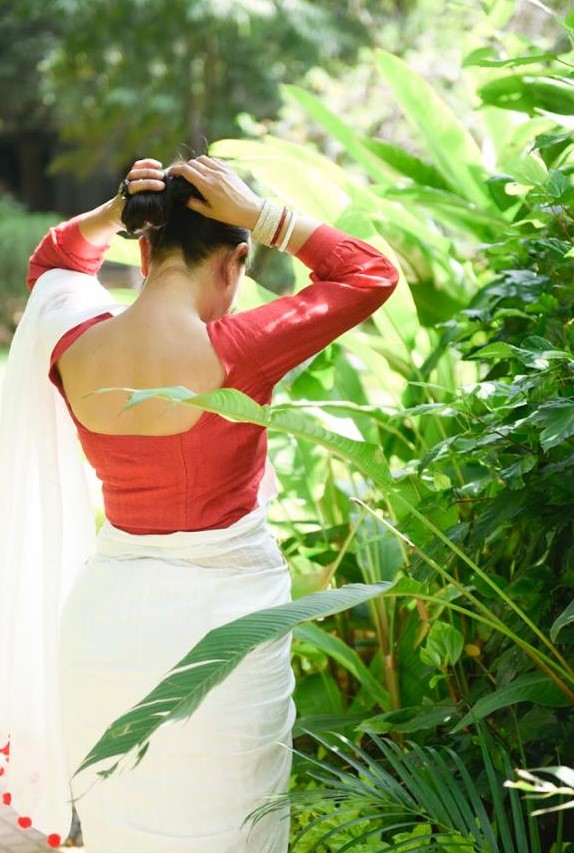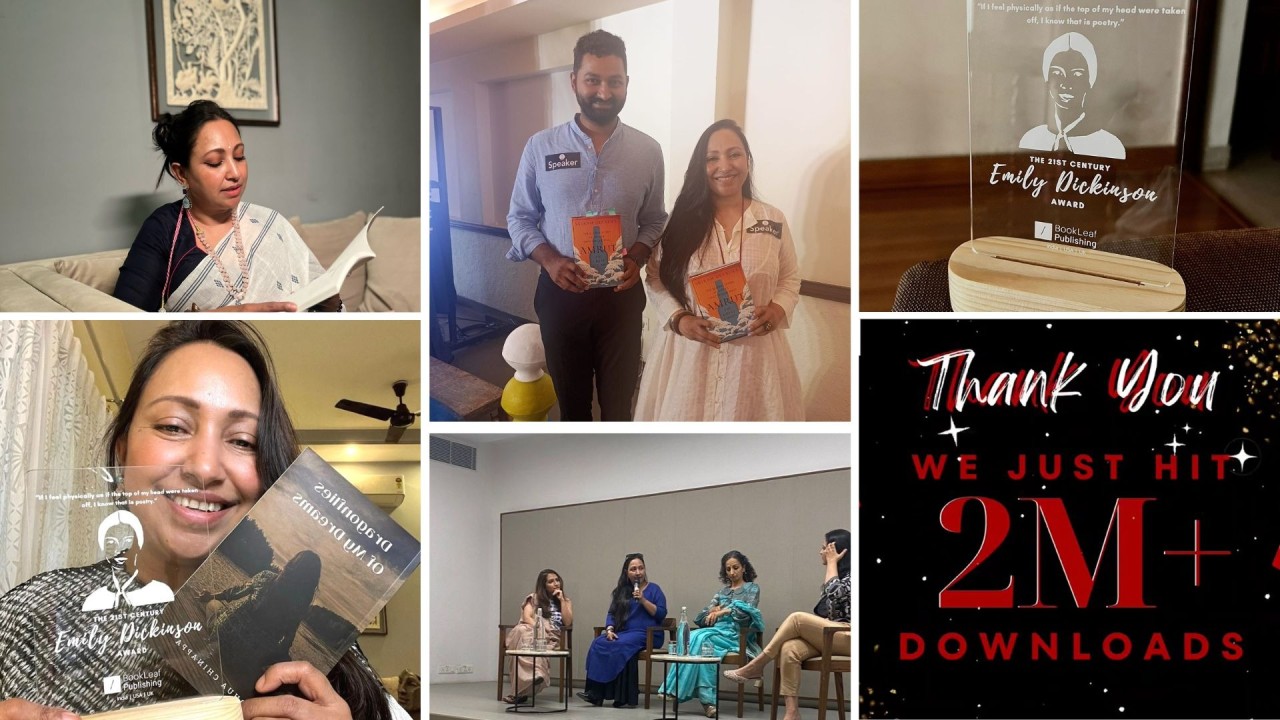Vermilion All Blue In The Twilight Hour
She gently nudged him, as she whispered into his ears, letting her warm breath engulf him. He shuddered as he turned around to catch her black kohl eyes and smudged sindoor on her forehead and her red blouse fall over her femininity, like a poem as he heard her voice and the words “for your love”.
Sindoor or Kumkum is the sign of a married woman among the Hindus in India. It traces back to the Harappan culture, where in the parting women wore red to signify her prayers for her husband’s long life. It has seen many changes since then.
As the fluidity of gender roles keep changing, red colour is going through its changes in societal developments and the changing of skewed gender roles. Women these days wear red dresses to feel passionately about themselves. Wedding vows are still mostly taken where the bride wears a red sari and blouse. Irrespective whether the vows remain significant or not. And as you evolve and society with its gender roles keeps evolving, red still remains the colour of love, desire, passion and matrimony.

Next week is the greatest festival for Bengalis, Durga Puja. Everyone is excited about new clothes and new tidings. Ma Durga is draped in a red blouse and sari. As she gets off her chariot to descend on earth, after massacring the evil Asura, in tow are her four children and her tamed lion.
This is symbolic of the modern woman of today. As she catches the metro, the bus or alights from her car or any form of transport, you know she has traveled a long journey. That is etched in the fine lines of her hands and face. As she adjusts her Sari drape over her bosom to avoid a lecherous male gaze, she feels protected with the kumkum on her parting. That red colour of courage, submission and sometimes subservience yet wildly poweful. I have met divorced women in middle and low income homes who have admitted to wearing the kumkum to avoid male harassment, even years after the husband has left them for good.
Sadly women are still not aware of their strength. And just as the twilight hour catches the last rays of the fierce sun going down into the sky, I hear my Ma like everyday she blows her conch to ward off evil and welcomes the end of a day.

For all of us our days begin and end playing multiple roles of being a mother, a daughter, a wife, a girlfriend and more. And in all of that we have shringar and our stolen moments of wearing our kumkum, just like the magic hour of the setting sun against the dark horizon ahead. We look beautiful in our broken mirror of hope.
I am yet to meet a woman when she looks into her mirror, and her eyes don’t smile and her face doesn’t light up. Even in remote villages where the little stained mirror, also the bastion for men to shave, women take out time to catch a glimpse of themselves in-spite of it all.
This blouse from WE ARE LABELESS, is called ‘Arya’ from their ‘Rahgir’ collection which means the traveler in Urdu. The puffed sleeves have traveled from generations and its vintage appeal of cupping the body in its soft cotton silk fabric, reminds me of an unnamed lyrical verse that speaks sometimes gently to the lover and sometimes with the fire of the thousand sun rays it has spent burning into its entity.

This fabric was sourced from the weavers of Bihar and has traveled miles in finding its way into my collection for Pujo. As I hold my love locked eyes in awe and gratitude towards the benign Goddess on the altar, I just realise she is the epitome of being complete in our incomplete, that makes us more special than a man. It is undisturbed knowledge of her being and her strength. Her benevolence towards her loved ones and also her brutal dislike for evil makes her our sindoor warrior, replete with the juxtaposition of the dark and light shadows of shame and fortitude, gathered over the years.
This brand was started in May 2019 by Mehak and Pallavi. Both with the belief towards women employment, sustainability and a fierce love for Indian arts & crafts. They are available on www.wearelabeless.com and you can find them on Instagram and Facebook.
Everytime you buy one of their creations you are fuelling income for one Goddess tucked away in a corner in a village far away from you. But she blesses you as she tucks the income in her blouse or in her little pouch.
Website: www.wearelabeless.com
Instagram: https://www.instagram.com/wearelabeless/
Facebook: https://www.facebook.com/wearelabeless/





